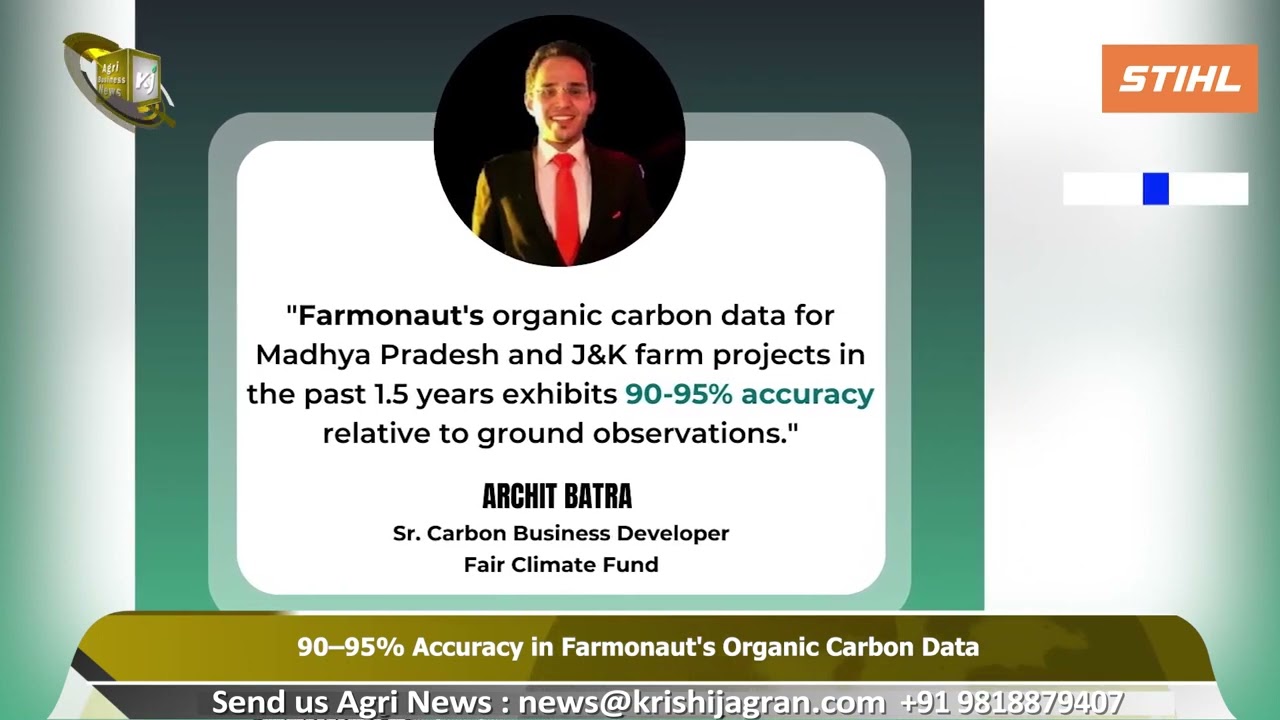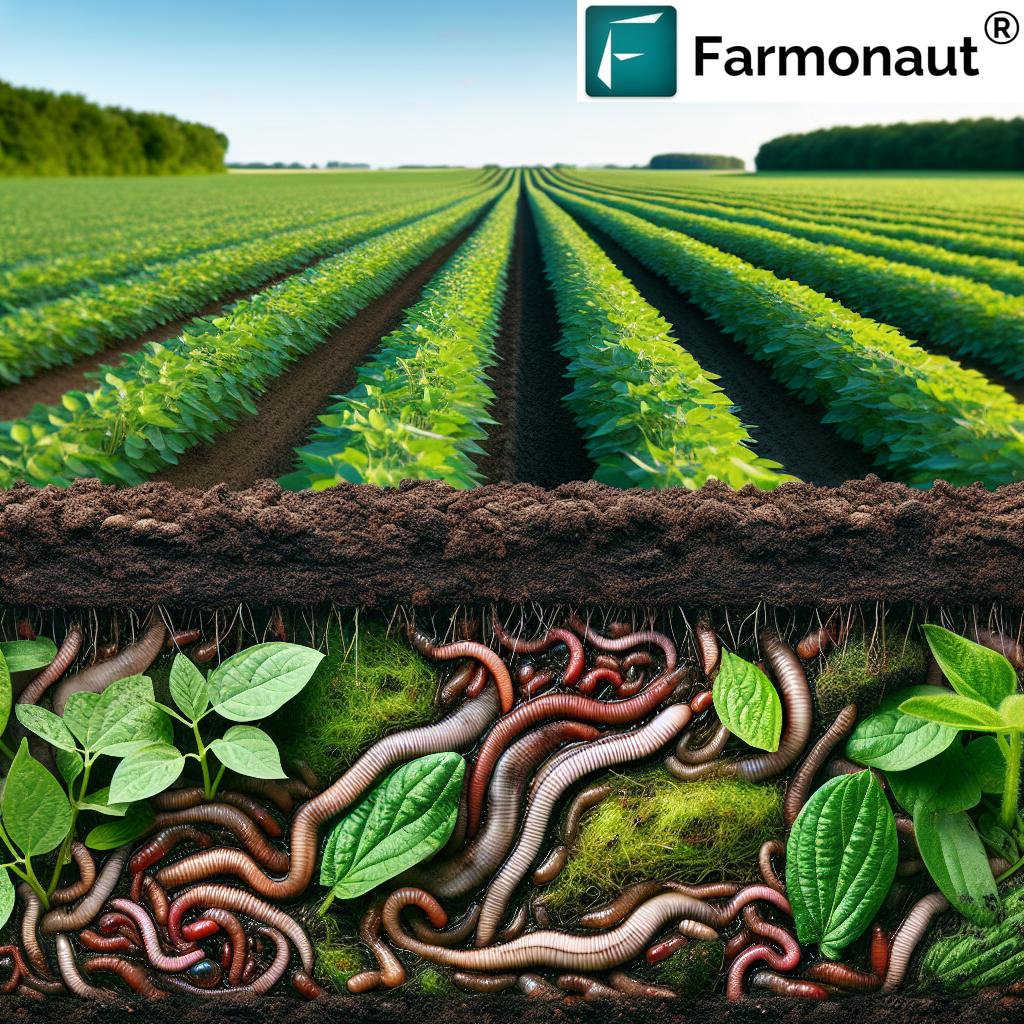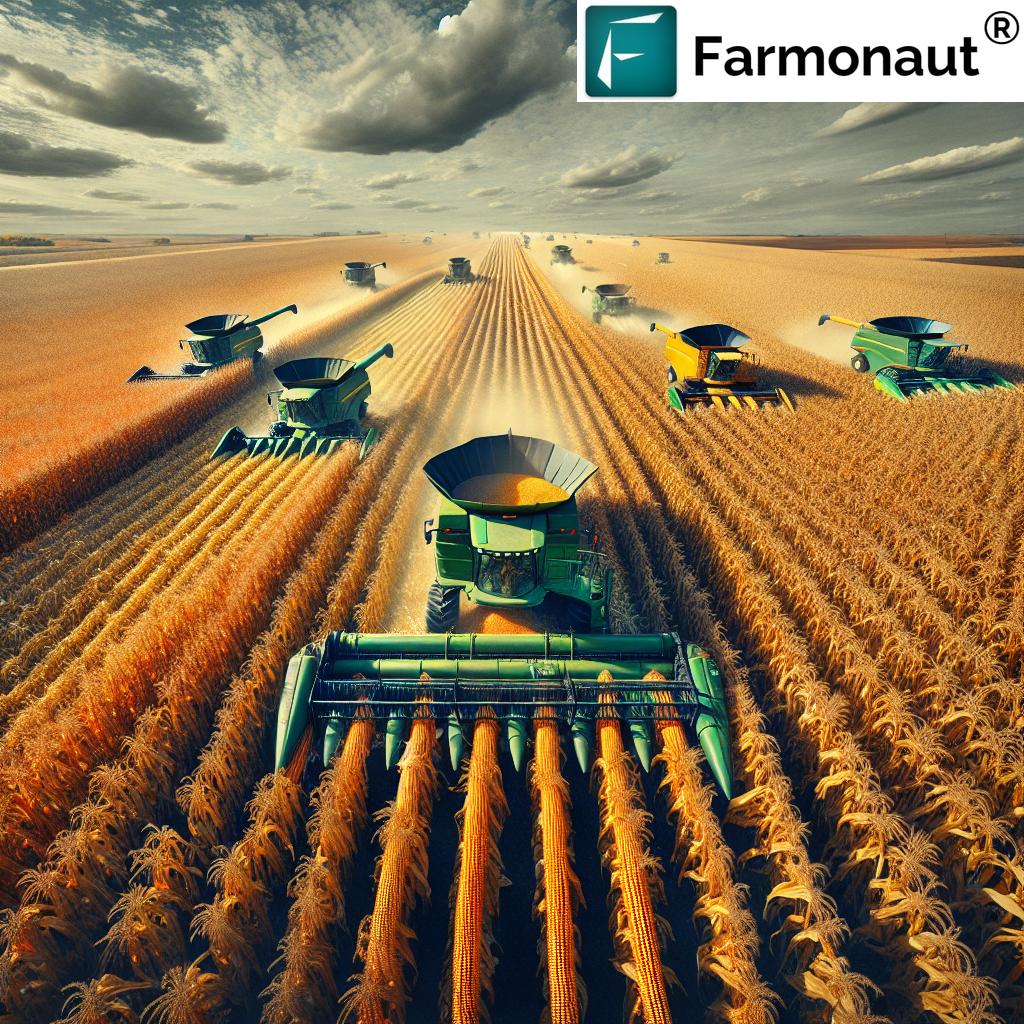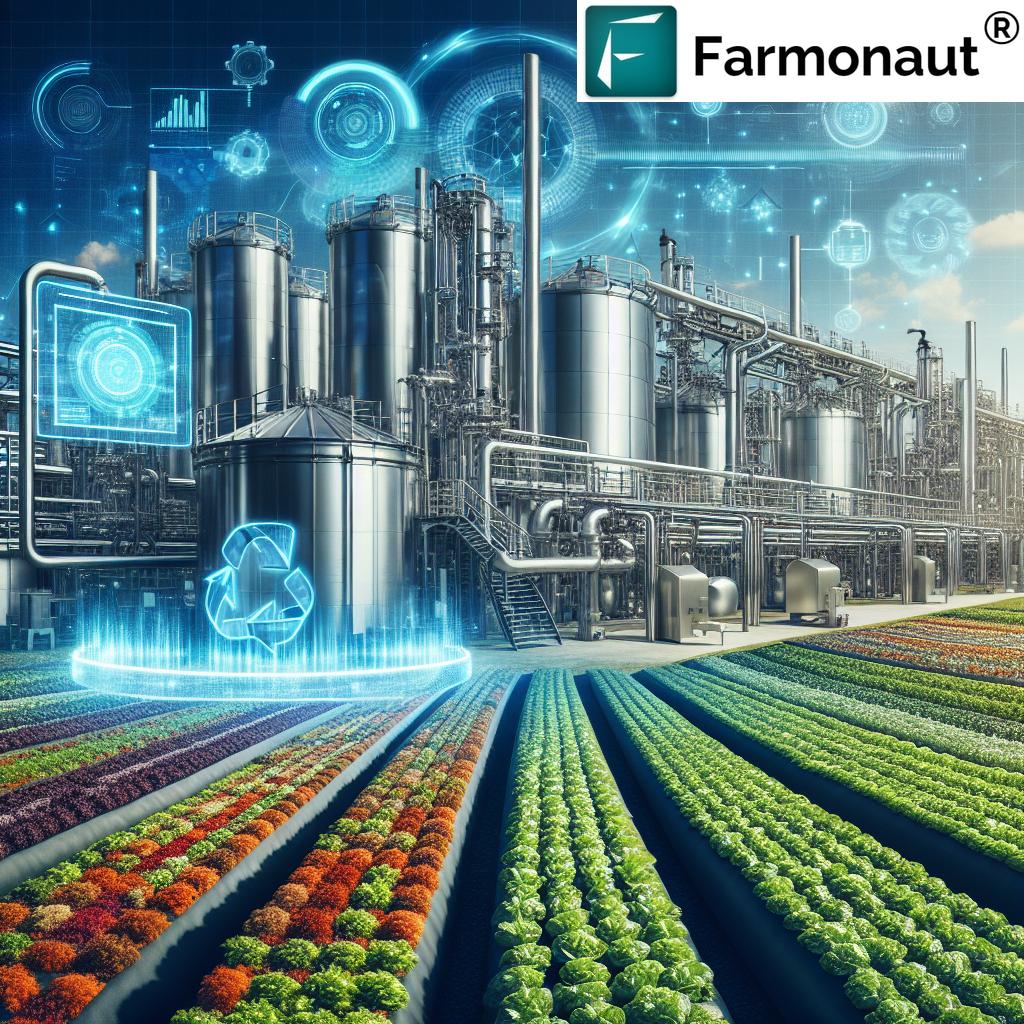Revolutionizing Organic Farming: California’s Grower Summit Unveils Sustainable Agriculture Trends and Innovations
“The Organic Grower Summit in Monterey, California, brought together hundreds of organic farmers, producers, and suppliers from across the industry.”
In the heart of California’s agricultural landscape, a gathering of visionaries and innovators recently took place that promises to shape the future of organic farming. We’re excited to share with you the groundbreaking developments and insights from the Organic Grower Summit held in Monterey, California. This premier event brought together the brightest minds in sustainable agriculture, showcasing cutting-edge organic farming techniques and agricultural innovation trends that are set to revolutionize the industry.
As we delve into the highlights of this summit, we’ll explore how these advancements are not only transforming the way we grow food but also how they’re addressing some of the most pressing challenges facing agriculture today. From the valleys of California to the fields of Watsonville, organic agriculture continues to evolve, with a laser focus on sustainability and efficiency.
The Organic Grower Summit: A Melting Pot of Innovation
The Organic Grower Summit, hosted by Western Growers and Farm Progress at the Hyatt Regency Monterey Hotel, was more than just a conference; it was a celebration of progress in the organic food sector. The event featured a vibrant trade show, enlightening seminars, and invaluable networking opportunities that fostered collaboration among producers and suppliers.
One of the summit’s highlights was the keynote address delivered by Karen Ross, California’s Secretary of Food and Agriculture. Her insights into the state’s commitment to organic farming set the tone for the discussions that followed, emphasizing the critical role of sustainable practices in securing our food future.

Honoring Excellence: The Grower of the Year
At the heart of the summit was a touching recognition of Dick Peixoto, owner of Lakeside Organic Gardens, who was named Grower of the Year. This honor, bestowed on his birthday no less, exemplifies the dedication and leadership that drives sustainable farming practices forward. Peixoto’s journey is not just inspirational; it’s a roadmap for aspiring organic farmers everywhere.
Lakeside Organic Gardens, founded by Peixoto, is a testament to what can be achieved with vision and perseverance. Spanning an impressive 3,300 acres, this organic powerhouse cultivates over 50 types of organic vegetables, distributing its produce across the United States and Canada. The scale of operation is a clear indicator of the growing demand for organic produce and the viability of large-scale organic farming.
The Pillars of Sustainable Success
Peixoto’s success story is built on several key pillars that were highlighted during the summit:
- Loyalty in Business Relationships: The longstanding partnership between Lakeside Organic Gardens and Charlie Hong Kong, a restaurant that consumes substantial amounts of organic produce, underscores the importance of building strong, lasting business relationships in the organic sector.
- Innovative Crop Rotation: Peixoto’s approach to vegetable crop rotation not only helps sustain soil health but also promotes collaborative farming techniques. This practice is crucial for maintaining the long-term viability of organic farms.
- Hands-On Approach: Industry leaders, including Miles Reiter from Driscoll’s, praised Peixoto’s hands-on approach to farming. This direct involvement ensures quality control and fosters innovation at every level of production.
“Organic agriculture in California spans thousands of acres, from the central valleys to the coastal fields of Watsonville.”
From Conventional to Organic: A Transformative Journey
Peixoto’s journey into organic farming is a compelling narrative that resonates with many in the industry. Born into a family with deep roots in agriculture, tracing back to potato farming in the Azores, Peixoto’s path was not a straightforward one. Despite his father’s shift to pesticide sales, Peixoto found his calling in organic farming after years in conventional agriculture.
His transition was driven by a profound dissatisfaction with the traditional corporate farming model, where profits were often disproportionately distributed. This realization led him to establish his own organic farming venture, starting modestly on a 50-acre plot before expanding significantly. Peixoto’s success in organic farming not only silenced skeptics but also inspired many of his peers to adopt similar practices.
Market Research: The Cornerstone of Successful Farming
One of the most valuable pieces of advice Peixoto shared during the summit was the importance of thorough agriculture market research. He cautioned aspiring farmers against focusing solely on niche crops without considering consumer demand. This insight is crucial for new farmers looking to enter the organic market:
- Conduct comprehensive research into market preferences
- Align cultivation efforts with consumer demand
- Stay flexible and adapt to changing market trends
This advice underscores the importance of balancing passion for organic farming with practical business acumen, a theme that resonated throughout the summit.
Community and Collaboration: The Heart of Organic Farming
Perhaps one of the most touching aspects of Peixoto’s success story is his strong sense of community. During the summit, he took the time to acknowledge the contributions of his employees, emphasizing their integral role in the success of Lakeside Organic Gardens. This recognition highlights a crucial aspect of sustainable agriculture: it’s not just about the land and the crops, but also about the people who nurture them.
Emerging Trends in Sustainable Agriculture
The Organic Grower Summit was a showcase of the latest trends and innovations in sustainable agriculture. Here’s a glimpse of some of the most exciting developments discussed:
| Trend/Innovation | Description | Potential Impact | Adoption Timeline |
|---|---|---|---|
| Precision Organic Farming | Use of advanced sensors and AI for targeted crop management | Increased yields, reduced resource use | 2-3 years |
| Regenerative Agriculture | Practices that restore soil health and increase biodiversity | Enhanced soil fertility, carbon sequestration | 3-5 years |
| Vertical Farming Integration | Incorporating vertical farming techniques in traditional organic operations | Year-round production, water conservation | 5-7 years |
| Blockchain for Traceability | Implementation of blockchain technology for supply chain transparency | Improved consumer trust, reduced fraud | 2-4 years |
| Biocontrol Innovations | Development of new organic pest control methods using beneficial organisms | Reduced chemical use, enhanced ecosystem balance | 1-3 years |
These innovations are set to transform the landscape of organic farming, making it more efficient, sustainable, and resilient in the face of climate change and growing food demand.
The Role of Technology in Modern Organic Farming
As we witnessed at the summit, technology plays an increasingly crucial role in advancing sustainable agriculture practices. From precision agriculture tools to AI-driven crop management systems, these technologies are helping farmers optimize their operations while minimizing environmental impact.
One such technology that’s making waves in the industry is Farmonaut’s advanced satellite-based farm management solutions. Their platform offers real-time crop health monitoring, AI-based advisory systems, and resource management tools that align perfectly with the needs of modern organic farmers.
Farmonaut’s technology exemplifies how digital innovation can support and enhance organic farming practices. By providing farmers with detailed insights into their crops and soil health, these tools enable more informed decision-making and efficient resource allocation.
Soil Health Management: The Foundation of Organic Farming
A recurring theme throughout the summit was the critical importance of soil health management in organic farming. Presentations and discussions highlighted various strategies for maintaining and improving soil quality, including:
- Cover cropping to prevent erosion and add organic matter
- Composting techniques to enhance soil fertility
- Minimal tillage practices to preserve soil structure
- Use of beneficial microorganisms to boost soil health
These practices not only improve crop yields but also contribute to the long-term sustainability of organic farms. By focusing on soil health, organic farmers are building resilience into their operations, better equipping them to face challenges such as climate change and pest pressures.
Organic Produce Distribution: Challenges and Opportunities
The summit also addressed the complexities of organic produce distribution, a critical aspect of the organic farming industry. Discussions centered around:
- Improving cold chain management for fresh produce
- Expanding local and regional distribution networks
- Leveraging e-commerce platforms for direct-to-consumer sales
- Developing innovative packaging solutions to extend shelf life
These conversations highlighted the need for continued innovation in distribution strategies to ensure that organic produce reaches consumers at peak freshness while minimizing food waste.

Emerging Organic Vegetable Varieties
One of the most exciting aspects of the summit was the showcase of emerging vegetable varieties specifically bred for organic production. These new varieties are designed to thrive in organic systems, offering:
- Enhanced pest and disease resistance
- Improved nutrient uptake efficiency
- Better adaptability to diverse climatic conditions
- Unique flavors and nutritional profiles
From novel rutabagas to innovative chard varieties, these new offerings are expanding the palette of organic produce available to consumers while providing farmers with more resilient and productive crop options.
Farm Business Strategies for Success
The Organic Grower Summit wasn’t just about agricultural practices; it also provided valuable insights into farm business strategies. Seminars and workshops covered topics such as:
- Financial planning and risk management for organic farms
- Marketing strategies for organic produce
- Navigating organic certification processes
- Leveraging technology for farm management
These sessions emphasized the importance of treating organic farming not just as a passion but as a business, ensuring long-term viability and success.
The Future of Organic Farming: Trends and Predictions
As we look to the future, several trends emerged from the summit that are likely to shape the organic farming landscape:
- Increased integration of technology in organic farming practices
- Growing consumer demand for transparency in food production
- Expansion of urban and vertical farming to complement traditional organic agriculture
- Greater focus on biodiversity and ecosystem services in organic farming systems
- Development of climate-resilient organic farming techniques
These trends point towards a future where organic farming is not only more sustainable but also more technologically advanced and responsive to consumer needs.
Embracing Innovation with Farmonaut
As we’ve seen throughout the Organic Grower Summit, technology plays a crucial role in advancing sustainable agriculture. Farmonaut’s satellite-based farm management solutions align perfectly with the industry’s move towards precision agriculture and data-driven decision-making.
By leveraging Farmonaut’s platform, organic farmers can access real-time insights into crop health, soil moisture levels, and other critical metrics. This data empowers farmers to make informed decisions about irrigation, fertilizer usage, and pest management, ultimately optimizing crop yields and reducing resource wastage.
Explore Farmonaut’s API for advanced agricultural insights
For developers and agribusinesses looking to integrate cutting-edge agricultural data into their systems, Farmonaut offers robust API solutions. These APIs provide access to satellite and weather data, enabling the creation of custom applications and tools tailored to the specific needs of organic farming operations.
Access Farmonaut’s API Developer Documentation
Whether you’re managing a small organic farm or overseeing large-scale organic operations, Farmonaut’s mobile apps for Android and iOS provide on-the-go access to critical farm data and insights.
Farmonaut Subscriptions: Empowering Organic Farmers
To support organic farmers in their journey towards more sustainable and efficient practices, Farmonaut offers flexible subscription plans tailored to various farm sizes and needs. These subscriptions provide access to the full suite of Farmonaut’s advanced agricultural tools and insights.
Conclusion: A Bright Future for Organic Farming
The Organic Grower Summit in Monterey, California, served as a powerful reminder of the innovation and dedication driving the organic farming industry forward. From the recognition of pioneering farmers like Dick Peixoto to the showcase of cutting-edge technologies and sustainable practices, the event highlighted the dynamic and evolving nature of organic agriculture.
As we move forward, it’s clear that the future of organic farming lies in the harmonious integration of traditional wisdom and modern innovation. By embracing sustainable practices, leveraging advanced technologies, and fostering a strong sense of community, organic farmers are not just producing food; they’re cultivating a more sustainable and resilient future for agriculture.
The insights and innovations shared at the summit paint a picture of an industry that’s constantly evolving, adapting, and growing. As consumers become increasingly conscious of the impact of their food choices, the demand for organic produce is set to rise, creating new opportunities and challenges for organic farmers.
By staying informed about the latest trends, adopting innovative practices, and leveraging technologies like those offered by Farmonaut, organic farmers can position themselves at the forefront of this agricultural revolution. The future of organic farming is bright, and events like the Organic Grower Summit are crucial in shaping that future, one sustainable practice at a time.
FAQs about Organic Farming and the Grower Summit
- What is the Organic Grower Summit?
The Organic Grower Summit is an annual event held in Monterey, California, that brings together organic farmers, producers, and suppliers to discuss innovations, trends, and challenges in sustainable agriculture. - Who was recognized as the Grower of the Year at the recent summit?
Dick Peixoto, owner of Lakeside Organic Gardens, was honored as the Grower of the Year for his contributions to organic farming and sustainable practices. - What are some key trends in organic farming highlighted at the summit?
Key trends included precision organic farming, regenerative agriculture, vertical farming integration, blockchain for traceability, and biocontrol innovations. - How is technology impacting organic farming?
Technology is playing an increasingly crucial role in organic farming, with tools like satellite-based crop monitoring, AI-driven advisory systems, and precision agriculture techniques helping farmers optimize their operations and improve sustainability. - What advice did Dick Peixoto offer to aspiring organic farmers?
Peixoto emphasized the importance of thorough market research, cautioning against focusing solely on niche crops without considering consumer demand. He also stressed the value of building strong business relationships and adopting innovative farming practices.




















